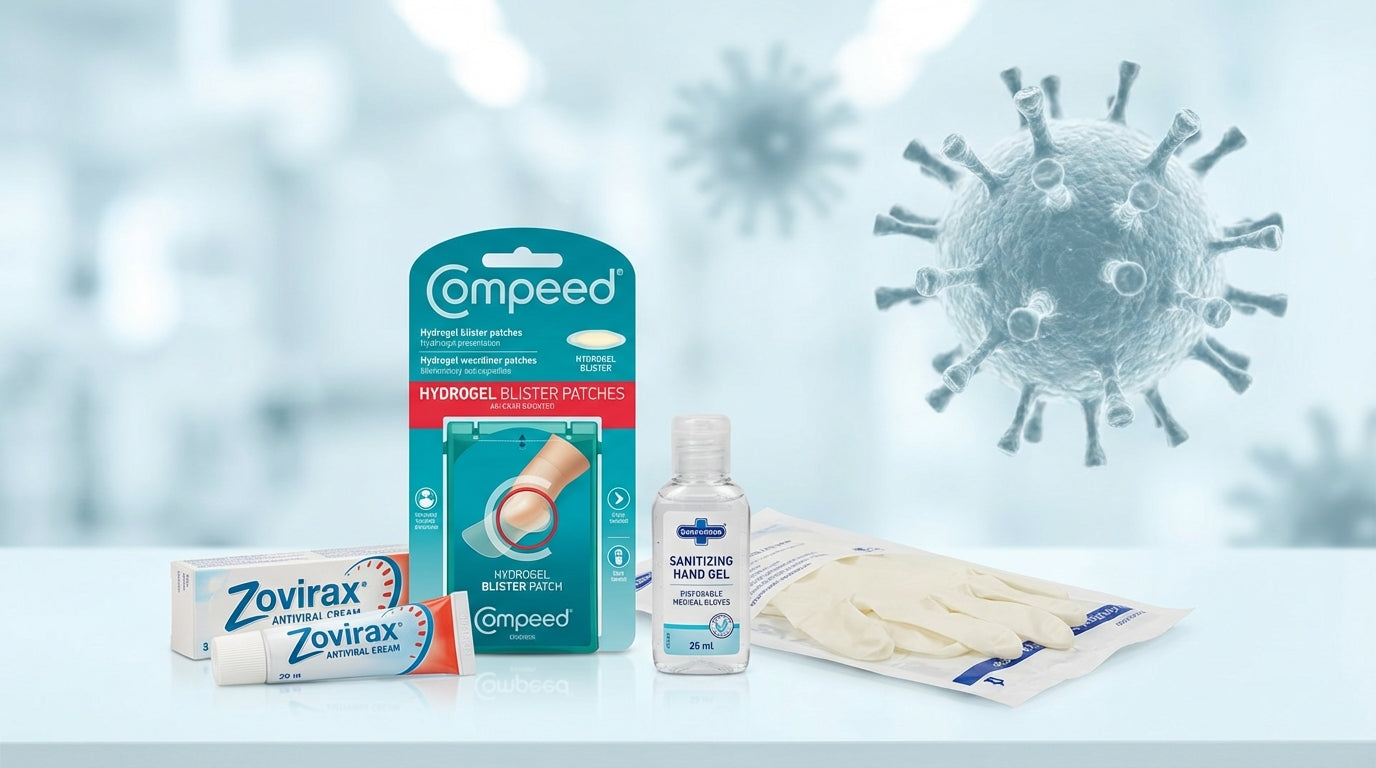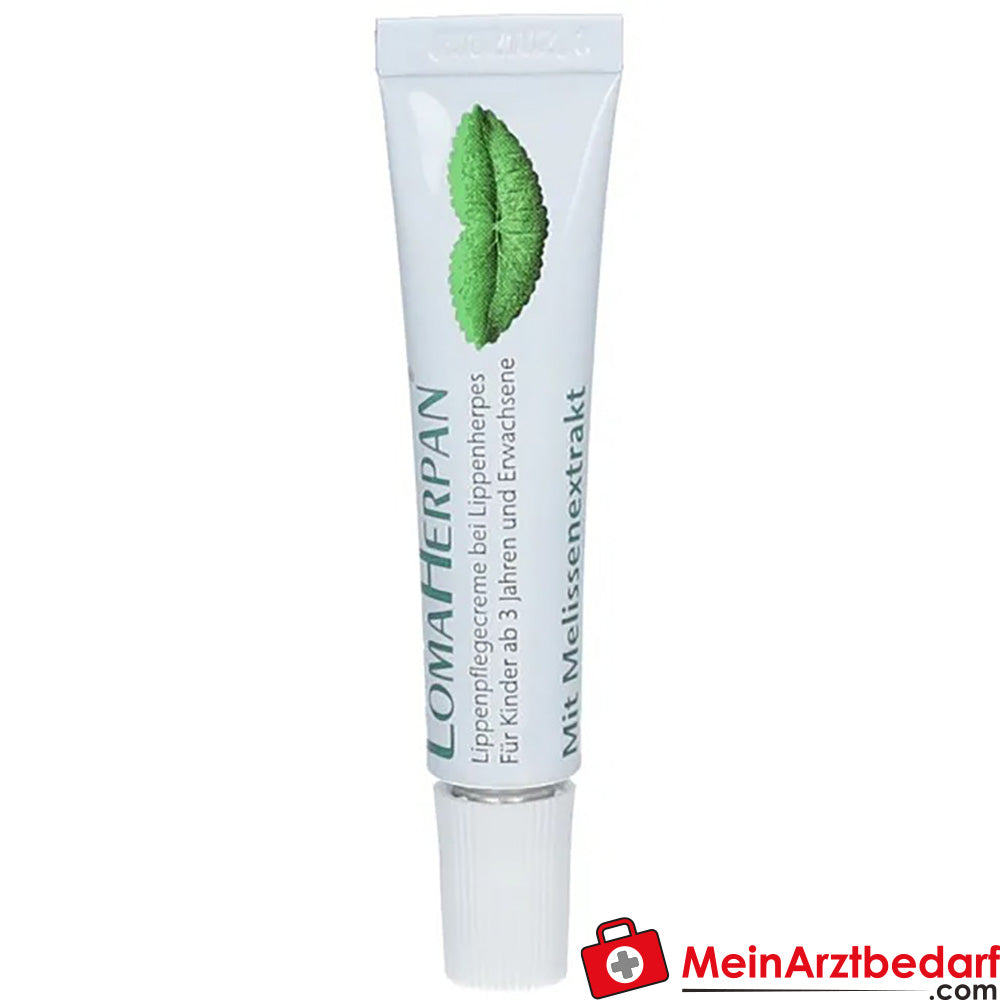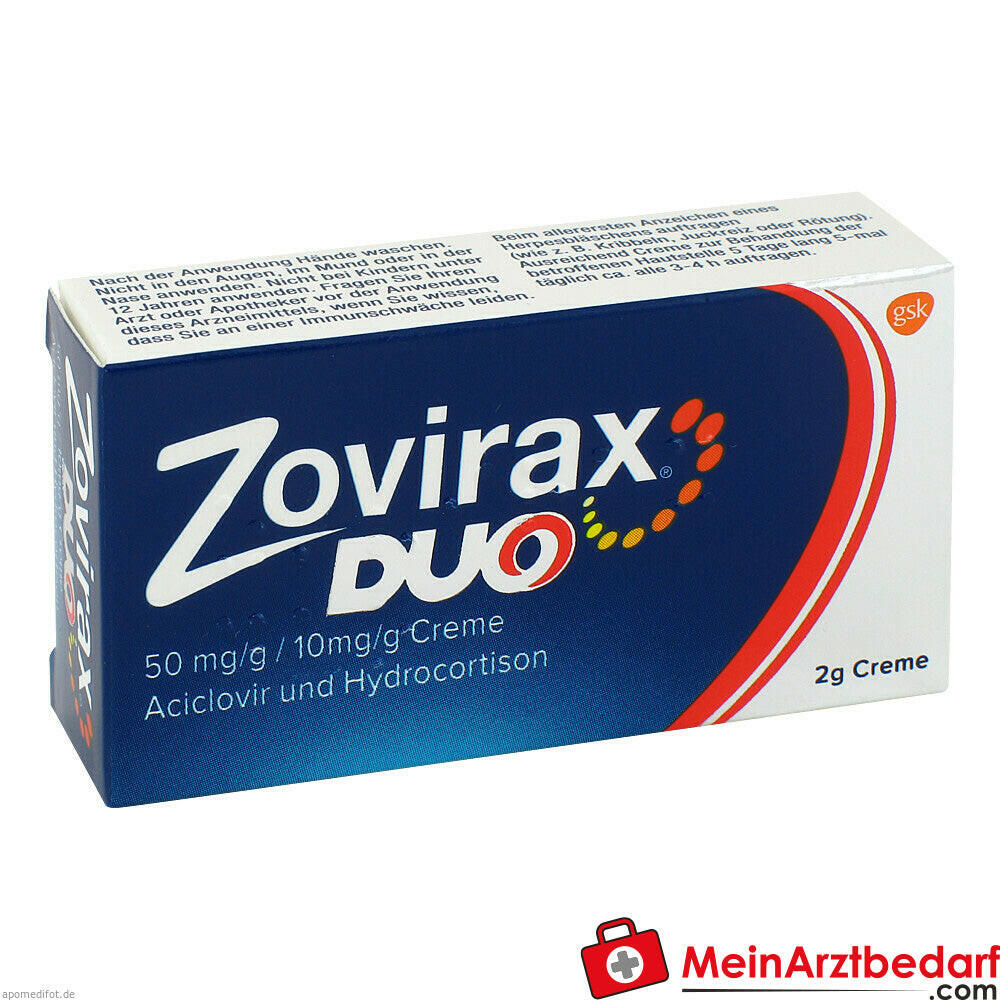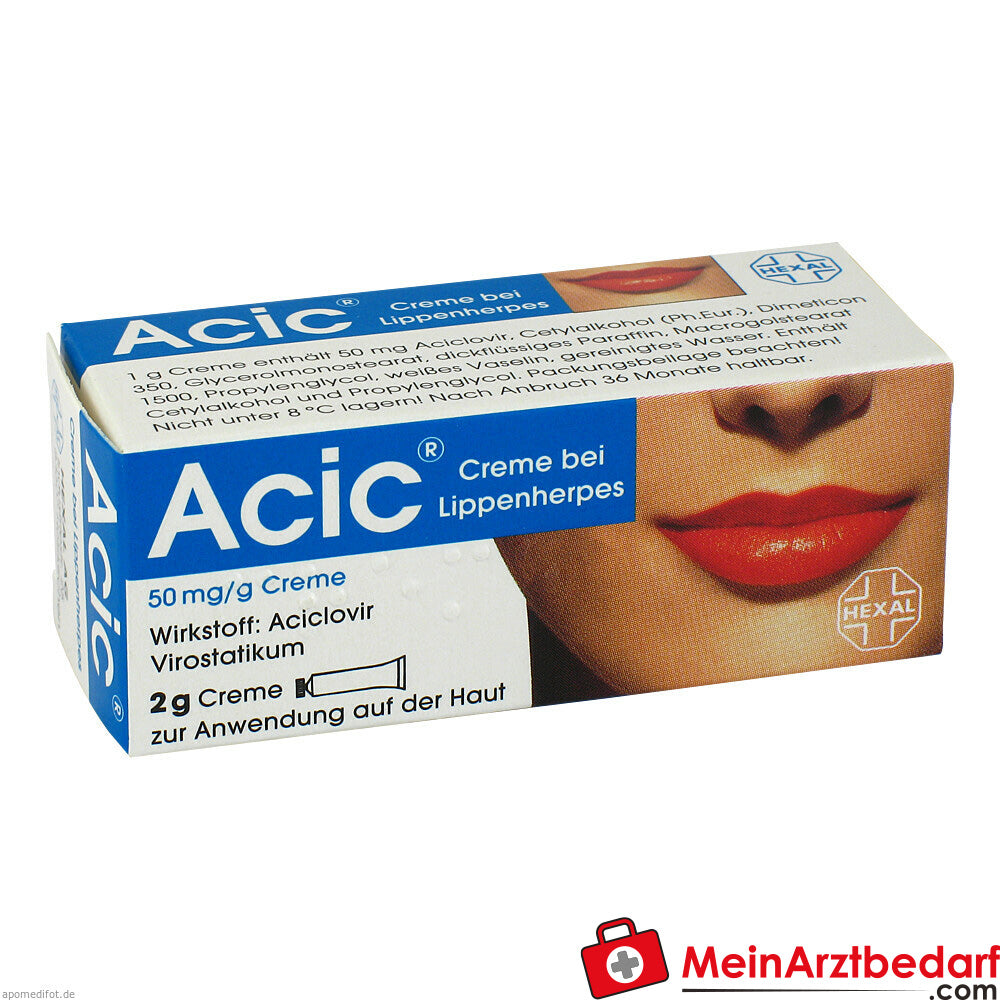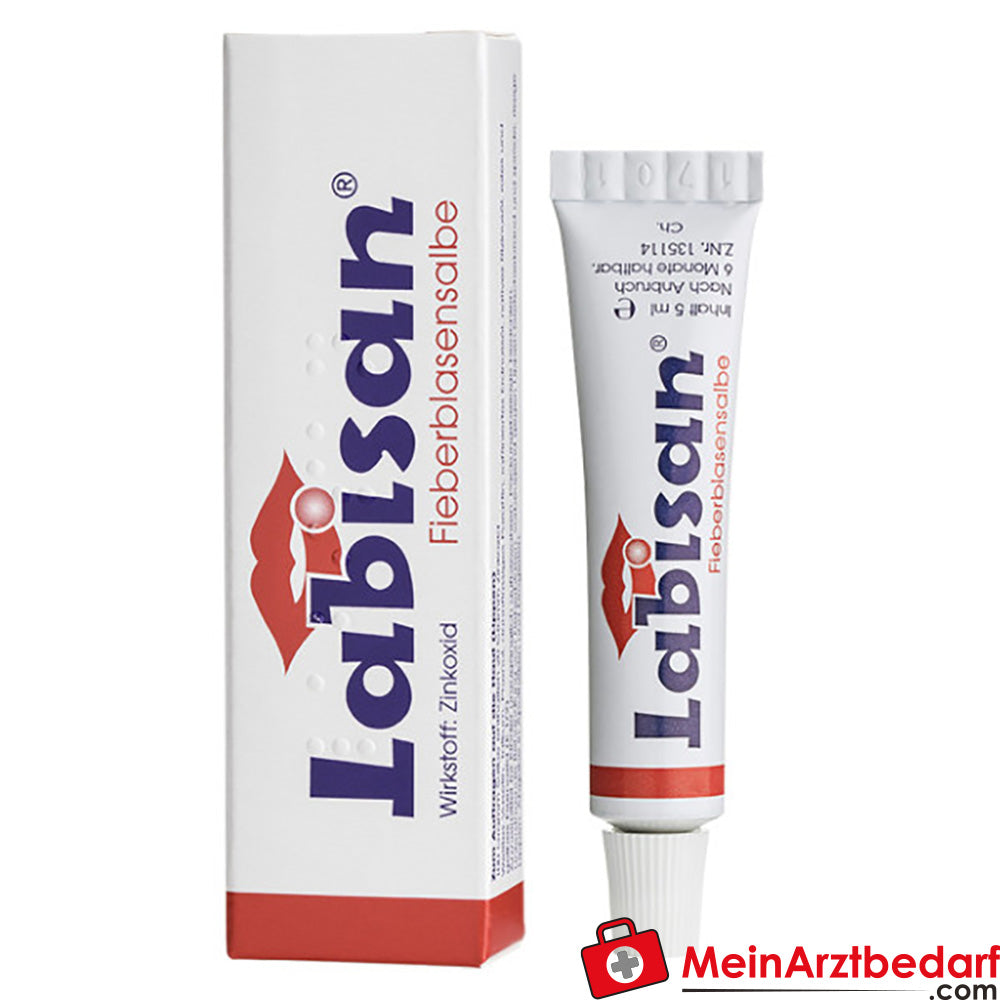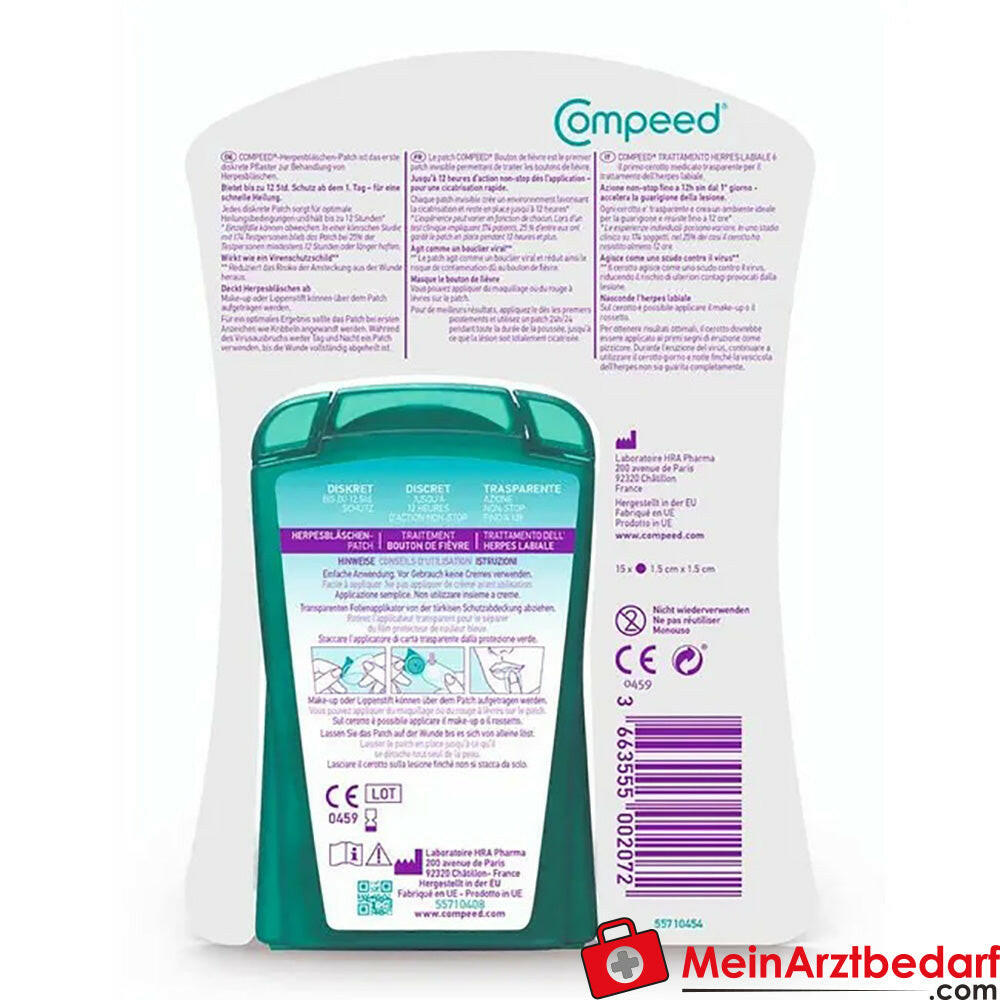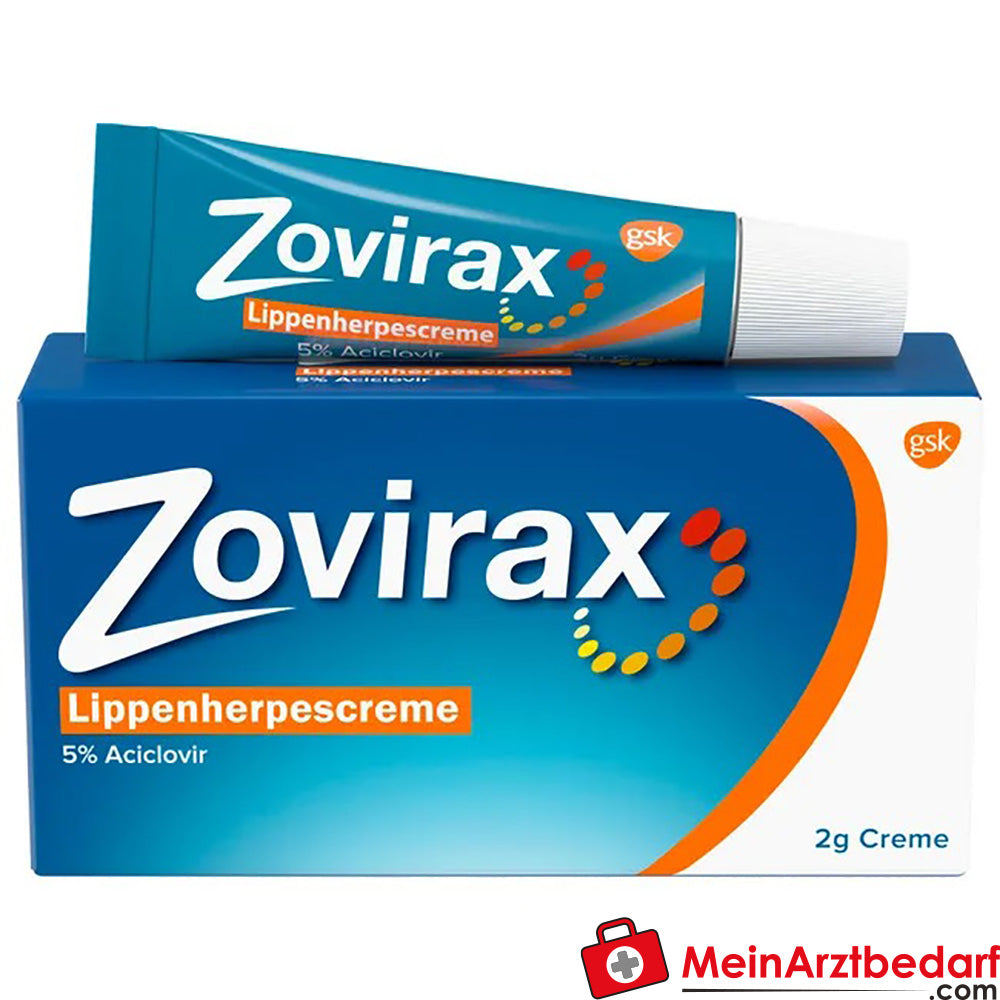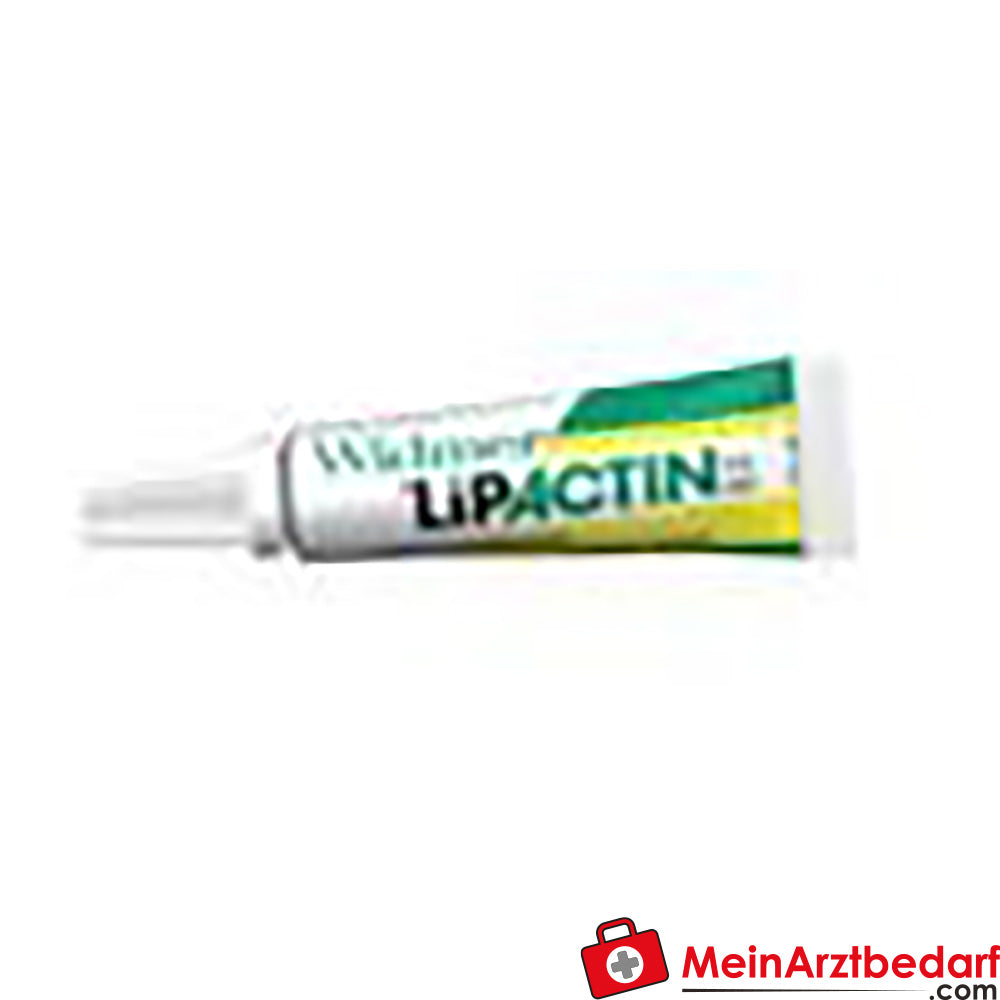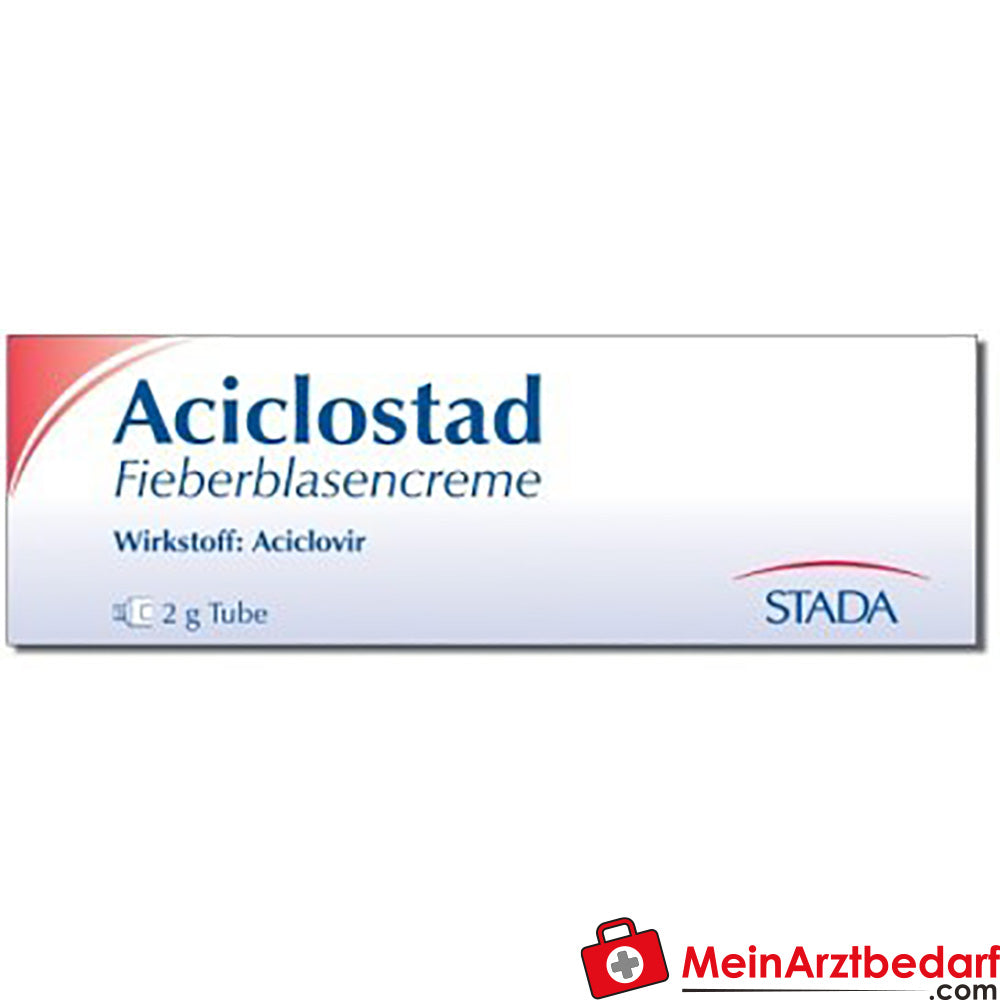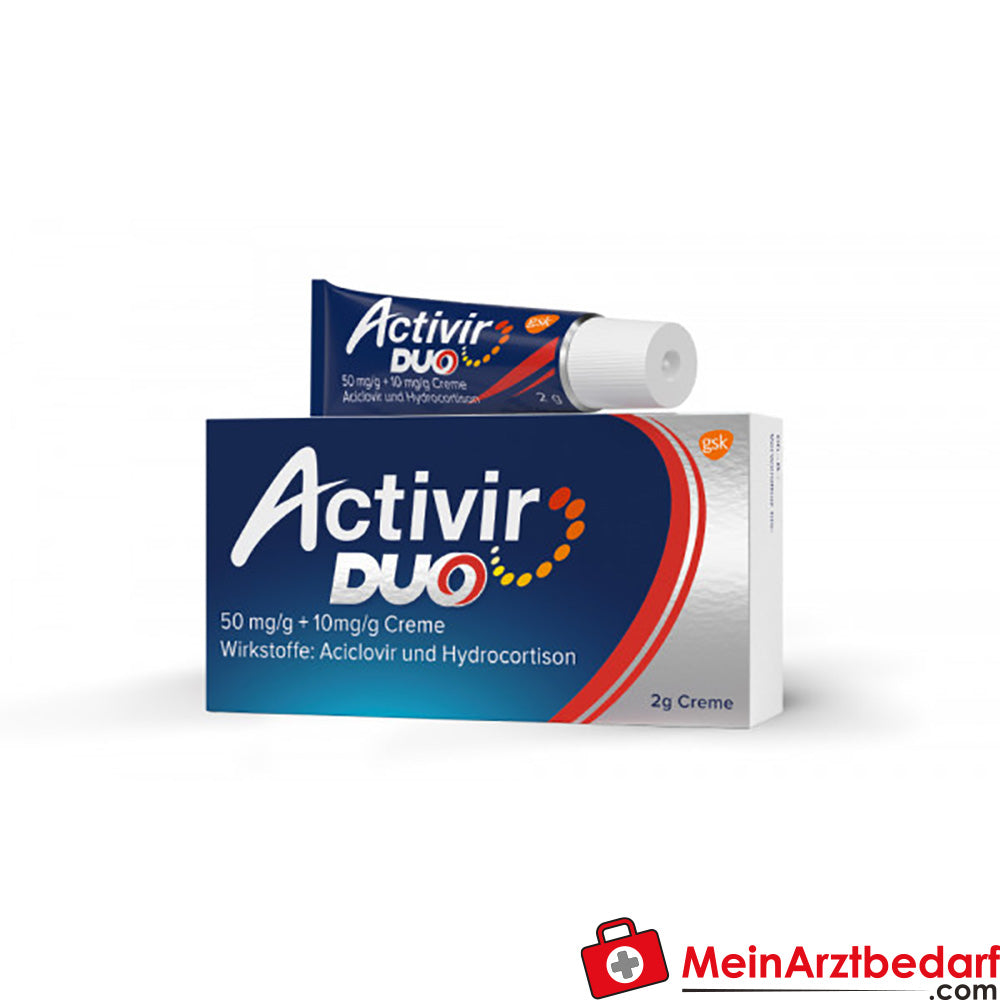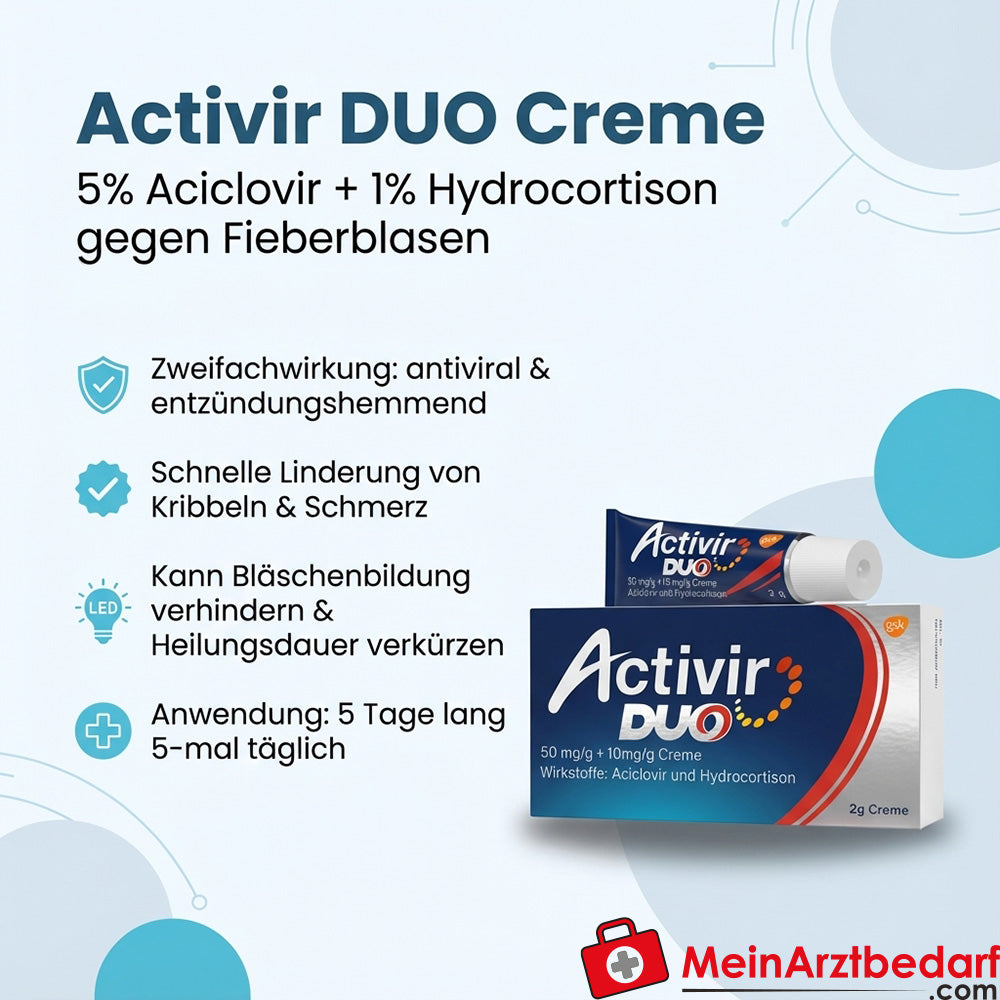15 Produkte
FilterPencivir Creme 10 mg/g gegen Lippenherpes Tube 2 g
LomaHerpan Lippenpflegecreme Melissenextrakt 5 ml
Zovirax Duo Creme 50 mg/g Aciclovir + 10 mg/g Hydrocortison 2 g
Acic Creme 50 mg Aciclovir bei Lippenherpes
Labisan Fieberblasensalbe 5 ml zur lokalen Behandlung von Herpes labialis
Compeed Herpesbläschen Hydrokolloid-Patch Lippenherpes 15 Stück
Zovirax Lippenherpescreme Aciclovir 50 mg/g Creme
Activir Fieberblasencreme 2 g (Aciclovir 5%)
Activir Fieberblasencreme Aciclovir 5% (50 mg/g) 2 g
Fenivir Fieberblasencreme abdeckend 1% Penciclovir 2 g
Louis Widmer Lipactin Gel 3 g – Behandlung Fieberbläschen (Herpes labialis)
Stada Aciclostad Creme 2 g - Aciclovir zur Behandlung von Lippenherpes
GSK Activir DUO Creme 2 g – 5% Aciclovir und 1% Hydrocortison gegen Fieberblasen
ratiopharm Fieberblasencreme 2 g antiviral gegen Herpes labialis
Fenivir Fieberblasencreme 1% (2 g), Penciclovir 10 mg/g
Herpes
Einsatzbereiche und Anwendungssituationen
Produkte aus der Kategorie Herpes decken Maßnahmen zur lokalen Versorgung von Lippen‑ und Herpesläsionen, zur symptomatischen Linderung sowie zur unterstützenden Wundpflege ab. Typische Einsatzsituationen sind akute Versorgung von Bläschen und Rissen, Schutz der betroffenen Hautstellen im Alltag, schmerzlindernde und kühlende Maßnahmen sowie die hygienische Handhabung bei Untersuchungen und Behandlungen.
Produkttypen und Funktionsbereiche
Die Auswahl umfasst lokale Therapiekonzepte und Pflegeprodukte, die unterschiedliche Anwendungsziele adressieren: Schutz und Abdeckung, lindernde Gele und Cremes, spezielle Wund- und Heilcremes, Pflasterlösungen sowie ergänzende Hygieneartikel für die sichere Anwendung.
- Schutzpflaster und Hydrogel‑Patches
- Topische Cremes und Gele zur lokalen Anwendung
- Wundpflege‑ und Regenerationssalben
- Einmalhandschuhe und Einweg‑Applikatoren für hygienische Nutzung
- Reinigende und desinfizierende Lösungen für die Umgebungspflege
Qualität, Handhabung und Nutzen im Alltag
Produkte aus dieser Kategorie sind darauf ausgelegt, die Anwendungssicherheit zu erhöhen, Kontaktübertragung zu minimieren und die betroffenen Hautareale mechanisch zu schützen. Schutzpflaster und Hydrogel‑Patches bieten eine mechanische Barriere, während Cremes und Gele für feuchte Wundumgebung und Linderung sorgen. Einmalhandschuhe und geeignete Applikationshilfen unterstützen hygienische Abläufe. Die Auswahl berücksichtigt einfache Applikation, gute Verträglichkeit und praktikable Lagerung.
Produktwahl und Marken
Bei der Auswahl spielen Verarbeitungsform, Tragedauer, Verträglichkeit und Verpackungseinheiten eine Rolle. Angebote von Herstellern wie Compeed, Zovirax und Fenistil stehen für unterschiedliche Formulierungen und Anwendungspräferenzen und ermöglichen einen abgestuften Einsatz je nach Anforderung.
Hinweise zur Integration in Routineprozesse
Die Kombination aus Schutzpflastern, lokal anzuwendenden Salben und konsequenter Hygiene unterstützt effiziente Abläufe. Sinnvoll sind standardisierte Bereitstellungssysteme für Verbrauchsmaterialien, gut gekennzeichnete Produktgruppen und Schulungen zur korrekten Applikation, um Handhabungssicherheit und Kontaminationsschutz zu gewährleisten.

